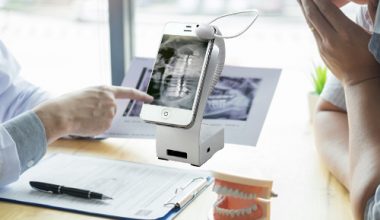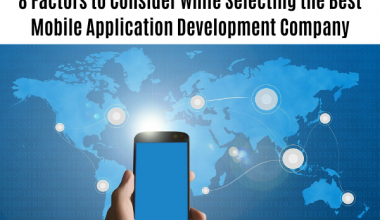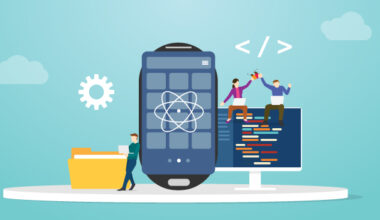(Reuters) – Hewlett-Packard Co (HPQ.N) announced a $1.2 billion deal to buy Palm Inc (PALM.O), betting it can resuscitate the struggling smartphone maker to compete with the likes of Apple Inc (AAPL.O) and RIM (RIMM.O).
Deals
Analysts say 2010’s third-largest U.S. tech acquisition grants Palm’s devices global production and distribution reach while launching the world’s top PC maker into a tech arena experiencing blistering growth.
The news on Wednesday surprised many on Wall Street, since much of the long-running takeover speculation surrounding Palm had shifted in recent weeks to focus on potential Asian bidders, such as China’s Lenovo (0992.HK).
An early pioneer in handheld devices, Palm once dominated the market but has since been surpassed by Apple’s iPhone and Research in Motion’s (RIM.TO) BlackBerry. Palm put out a new mobile operating system, the well-reviewed webOS, last year but even that has been overshadowed by Google Inc’s (GOOG.O) Android software.
In a sign of Palm’s struggles, the money-losing company headed by Jon Rubinstein — an ex-Apple executive famous for developing the iPod — slashed revenue expectations for the current quarter. It said slow product sales have led to low order volumes from carriers.
“If you saw the guidance Palm just put out, it was clear they had to sell,” said Phil Cusick, analyst at Macquarie Research. “Given how quickly Palm’s business was falling off and how fast their cash was going out the door, they’re lucky to get what they got.
Palm reported losses for each of its last two fiscal years.
Shares of Palm, 30 percent owned by Elevation Partners, jumped 27 percent to $5.88, above HP’s $5.70 cash offer. Some investors could be betting on a higher bid, while others could be covering short positions on the heavily shorted stock, analysts said..
HP said the deal for Palm, which both boards have approved, valued the company at $1.2 billion including debt. Based on Palm’s latest filing, the deal values Palm’s 167.892 million shares outstanding at $957 million.
Analysts said HP has deep pockets to invest in Palm, can expand its carrier relationships and negotiate better component pricing from existing suppliers.
“PC companies don’t need cellphone-type margins to make the model work; they can be much more price-aggressive in capturing share and will certainly drive margins down for everyone else,” said Avi Cohen at Avian Securities.
Bank of America Merrill Lynch advised HP, while Goldman Sachs advised Palm.
GOOD DEAL OR NOT?
HP’s foray into the fiercely contested smartphone arena, while it may not immediately threaten Apple, and Research in Motion’s BlackBerry, may increase pressure on Nokia (NOK1V.HE), Motorola (MOT.N) and other device manufacturers now battling to expand their market share.
“Nokia will be one of the most affected players,” said IDC analyst Francisco Jeronimo. Because of a “wrong portfolio and lack of carrier support, Nokia never moved from its eighth position…in the smartphone segment. This deal puts also pressure on Motorola and HTC.”
Others, however, were more skeptical about HP’s ability to turn around Palm, whose Pre and Pixi phones have withered in the face of fierce competition.
“If HP wants to have a global role in the mobile space, spending $1.2 billion in Palm is not the way. Palm has no brand outside the U.S., and it has no distribution outside the U.S.” said John Strand, chief executive of Strand Consult.
“To pay $1.2 billion for a U.S.-centric mobile player that’s not successful is a first-class way to destroy shareholder value. Palm has tried to move from the PDA world into the mobile world for eight years without success,” Strand said.
According to Gartner, Palm held 1.2 percent of the global smartphone market in 2009, compared with Nokia’s (NOK1V.HE) 41.1 percent, RIM’s 19.9 percent and Apple’s 14.4 percent.
Despite Palm’s shortcomings, persistent takeover rumors have attracted many investors to the heavily shorted stock. For example, Philip Falcone’s hedge fund Harbinger Capital Partners LLC bought Palm shares on April 12, when they were trading between $5.43 and $6.29, and had a 9.48 percent stake.
The deal may mark the culmination of a long-running effort by private equity firm Elevation Partners, the private equity firm that boasts U2 frontman Bono among its partners.
Elevation — which bought a quarter of Palm for $325 million in 2007 — had brought in numerous ex-Apple executives over the years in hopes of turning the company around, including Rubinstein.
It was unclear how much Elevation, which has invested about $460 million in Palm, made or lost.
Some investment banking sources had thought that Lenovo (0992.HK) was the leading candidate to buy Palm after the U.S. company was rebuffed by other potential Asian buyers including HTC Corp (2498.TW) and Huawei HWT.UL.
Palm now expects fiscal fourth quarter revenue in the range of $90 million to $100 million, compared with its mid-March forecast that revenue would be less than $150 million.
Todd Bradley, executive vice president of HP’s computer division, said the company plans to “invest heavily” in Palm, increasing spending on sales and marketing and research and development in the hope of spurring the developer community into writing more applications for the platform.
Palm’s app universe now has more than 2,000 applications, dwarfed by Apple’s App store with closer to 200,000 apps.
Bradley also said Palm’s platform is attractive for an entire ecosystem of mobile devices, from smartphones to slate devices to netbooks.
HP Executives expected a few cents” dilution for from the deal in the second half of fiscal 2010 and “mild” impact in 2011 — for a company that in the fiscal first quarter reported non-GAAP earnings of $1.07 per share.
“Coupled with our scale, global reach and investments in the ecosystem, we expect we will see solid growth,” he said.
HP already has a smartphone, the iPaq, which runs on Microsoft’s (MSFT.O) Windows mobile platform. But the device has gained little traction in a crowded market.
Rubinstein is expected to remain with the company, HP said in a statement, adding that the acquisition would likely close during its third fiscal quarter ending July 31.
Shares of HP fell 1 percent to $52.75 in extended trading from their New York Stock Exchange close of $53.28.
HP “would be one of the few companies that I think could successfully turn Palm around. The company has great brand, great international distribution,” said C.L. King Associates’ analyst Lawrence Harris. “That will open a lot of doors.”
Resource:
http://www.reuters.com/article/idUSTRE63R5HO20100429



